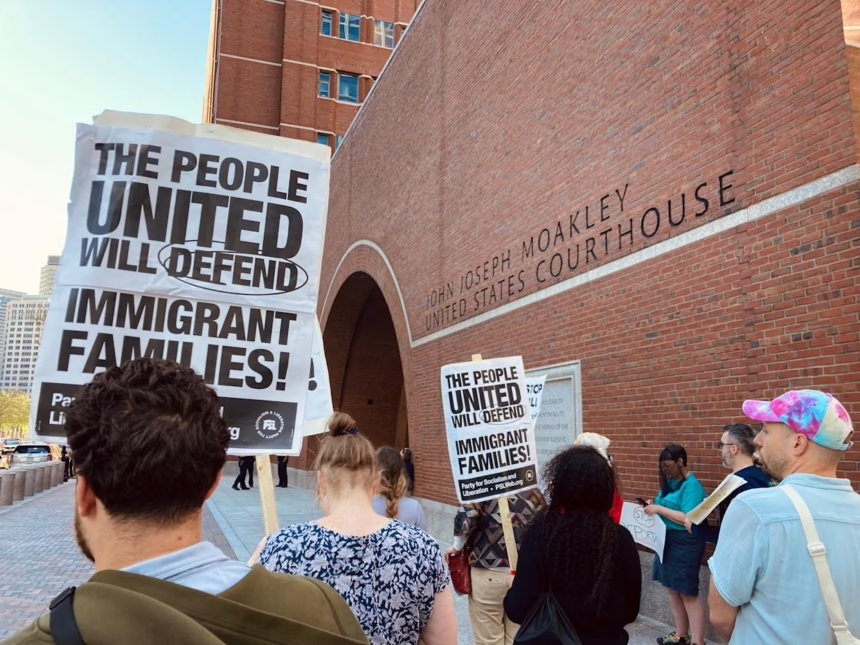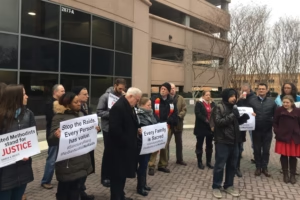The Trump administration’s immigration policy continues to face strong resistance at the states level.
Massachusetts Attorney General Andrea Joy Campbell announced that she has joined a group of 19 counterparts in legally challenging a directive from the Department of Homeland Security (DHS).
This federal measure imposes the automatic detention of many migrants without the possibility of a bond hearing.
According to information reported by Newsweek, this coalition of states seeks to block a policy deemed contrary to American constitutional principles.
In a brief submitted to the court, the attorneys general argue that the directive violates the right to a fair trial and gravely undermines the protection of fundamental rights.
For Andrea Campbell, the message is clear: “Detaining people indefinitely who pose no danger to society or risk of flight is inhumane and incompatible with our values.” The Massachusetts attorney general stressed that states directly bear the consequences of this security-driven approach, both on a human and economic level.
A Break with Judicial Practice
Until recently, immigrants in removal proceedings had the opportunity to request a hearing before a judge in order to obtain release on bond. The DHS directive removes this option for broad categories of people, condemning them to prolonged detention without individual review, which the attorneys general argue runs contrary to U.S. law.
The signatory prosecutors warn of the deterrent effect of such a policy: many families, fearing arrest, could avoid using essential services such as healthcare or food assistance. “This only worsens hardship and increases health risks in our communities,” the brief cited by Newsweek states.
The financial argument is central to the challenge. The signatories note that undocumented immigrants represent nearly 5 percent of the U.S. workforce. Their abrupt removal from the labor market would, they argue, have major repercussions on both local and national economies.
Systematic detention is also particularly costly. Existing alternatives already implemented by DHS—such as monitoring or administrative control programs—cost taxpayers significantly less and are often more effective. For the prosecutors, the choice of “blanket” detention is therefore not only unjust but also irrational from a budgetary perspective.
Limited Access to Justice
Another concern raised by the coalition is the difficulty for detainees held in remote facilities to access legal counsel. Detention in locations far from major urban centers prevents many migrants from obtaining adequate representation, which severely weakens their chances in court.
“Denying someone the possibility of preparing their defense with counsel undermines the very core of the rule of law,” said Andrea Campbell, quoted by Newsweek.
While the Trump administration defends a hard line on immigration policy and justifies the directive on security grounds, the attorneys general argue that it represents an authoritarian shift.
Federal Court to Decide in Coming Months
The federal judiciary will have to rule in the coming months. If the states prevail, DHS could be forced to revise its policy and restore access to bond hearings. If not, the directive would set a precedent by significantly expanding detention powers without judicial oversight.
In the meantime, Andrea Joy Campbell insists that Massachusetts will remain mobilized: “This fight goes beyond the issue of immigration. It is about defending justice, humanity, and the balance of our democratic system.”
https://ctninfo.com/?p=36614&preview=true
https://www.facebook.com/CaribbeanNewsMedia
https://www.linkedin.com/company/ctnmedia/?viewAsMember=true








